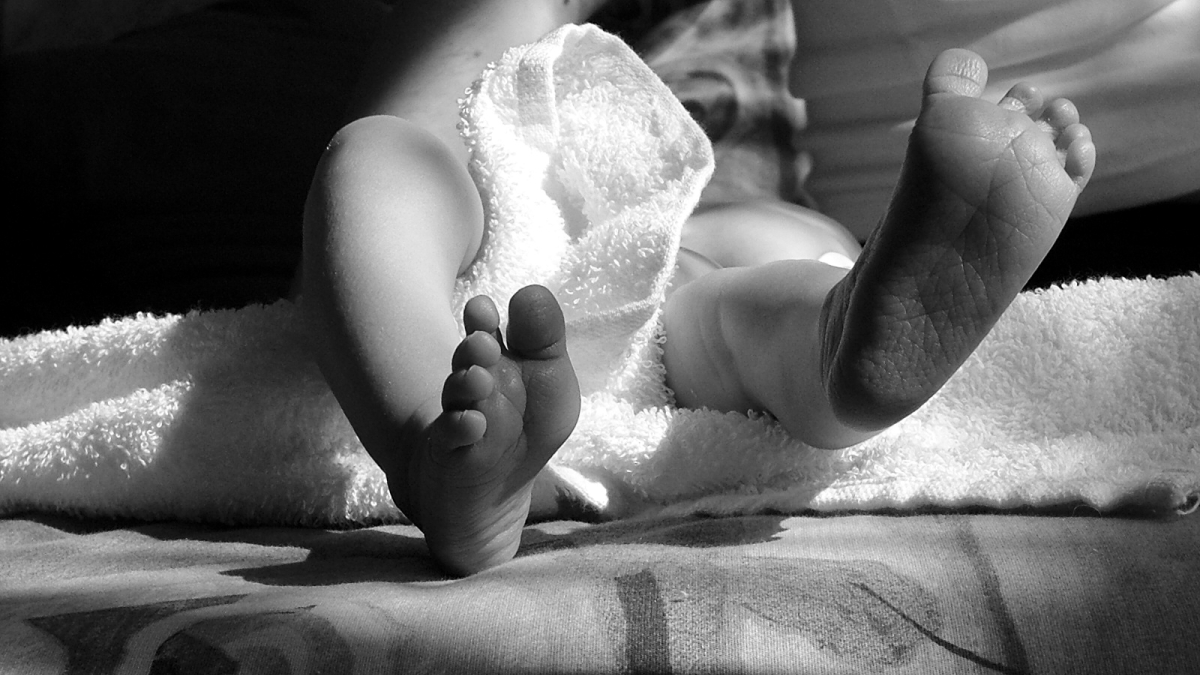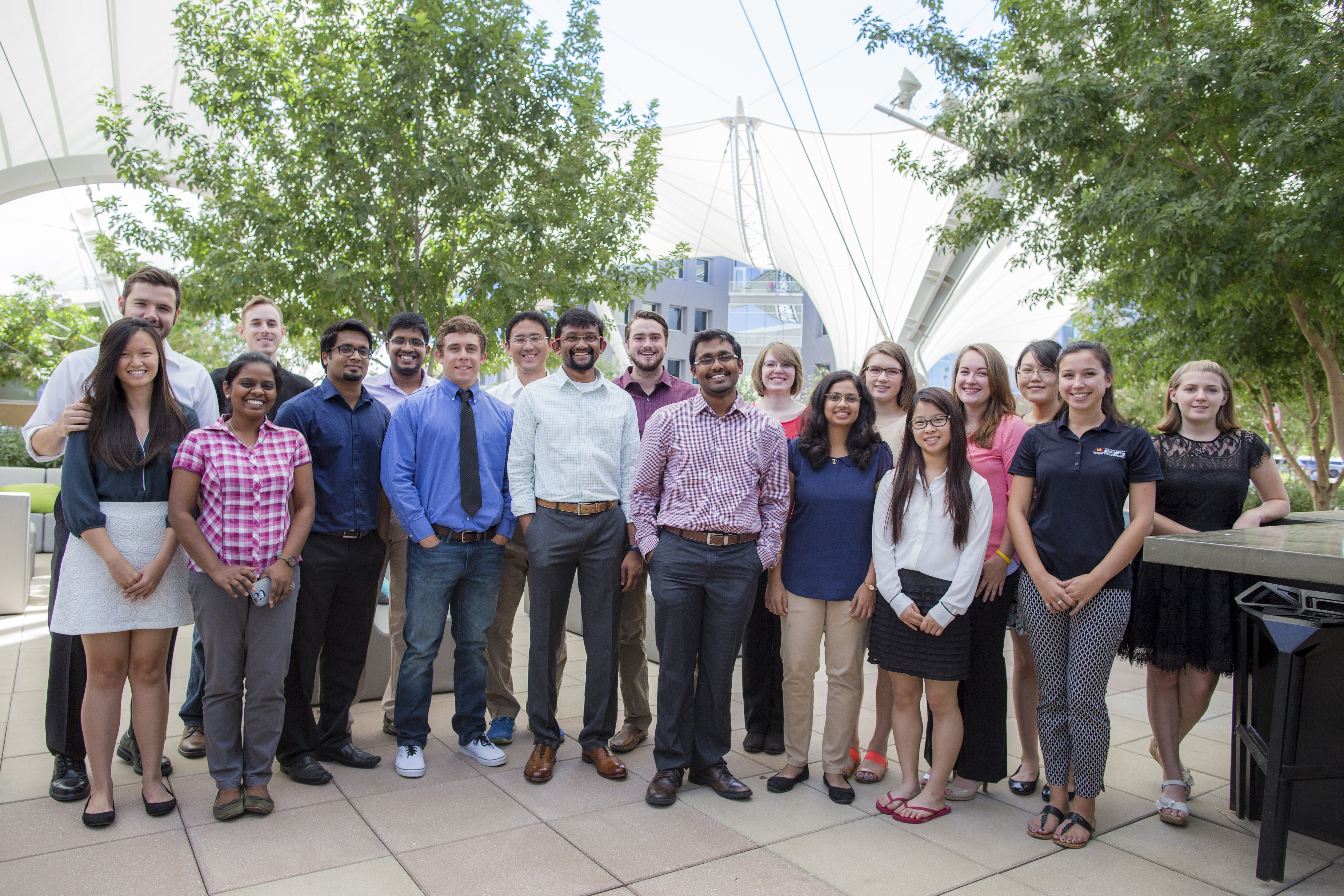ASU startup develops device that will radically change infant jaundice treatment

In 2012, 21-year-old engineer Sivakumar Palaniswamy witnessed what he described as a heartbreaking sight in an infant care unit at a renowned hospital in India: A single halogen bulb hung from the ceiling, illuminating several newborns in bassinets, purportedly for therapeutic purposes.
The bulb was to treat newborns suffering from jaundice, a condition that causes yellowing of skinThe skin discoloration takes place due to the accumulation of a yellowish pigment called bilirubin, produced as a byproduct of the breakdown of red blood cells.. In the most severe cases, the condition can result in deafness, cerebral palsy or other forms of brain damage.
Six out of every 10 infants worldwide are born with jaundice. It is treated with the help of phototherapy — exposing a newborn to certain wavelengths of light for prescribed periods of time.
However, in the hospital in India, it didn’t take Palaniswamy long to figure out that a single halogen lamp wasn’t an appropriate or adequate solution to the problem.
“I found out that phototherapy devices were either too expensive or required a steady supply of electricity to provide adequate care to newborns in need, resources that aren’t easily available in a developing country,” he said. “Infants were suffering due to a condition that is entirely treatable. I realized that the entire approach to treating infant jaundice needed improvement.”
Palaniswamy wanted to help.
The chance to change lives
In the last year, medical device startup NeoLight, founded by Palaniswamy and a group of Arizona State University students, is on its way to transforming the treatment of infant jaundice worldwide.
With the help of two separate versions — one for the developed world and another for use in developing countries — the device has piqued the interest of health providers and investors alike, and NeoLight leadership has raised nearly $475,000 for further development.
The disruptive technology has also led NeoLight to be one of only nine startups to be selected from hundreds across the world in the social-impact category for the South by Southwest Eco Startup Showcase held in October in Austin, Texas.
Before coming to ASU, Palaniswamy began working on an initial prototype. His work on it continued upon joining the Ira A. Fulton Schools of Engineering to pursue a master’s degree in biomedical engineering.
ASU startup NeoLight is transforming the treatment of infant jaundice through its medical device. From left to right: Chiaomay Lee, Andrew Hatcher, Saranya Muniswamy, Nithin Jacob, Andrew Hatcher, Ryan Giudice, Patrick Gong, Rushi Dev, Vivek Kopparthi, Chase Garrett, Sivakumar Palaniswamy, Kirstin Jeffreys, Aditi Mitkar, Coleen Fox, Sandy Seto, Ashleigh Foltz, Candice Chen, Hannah Horezcko and Naomi Welch.
It was at ASU that Palaniswamy joined forces with his childhood friend Vivek Kopparthi, who was pursuing a master’s degree in business management at the W. P. Carey School of Business; Chase Garrett, a master’s degree student majoring in business and legal studies; and Deepakshyam Krishnaraju, a mechanical design engineering major from Fulton Schools, to launch NeoLight.
The team applied to enter ASU’s 2014-2015 Edson Student Entrepreneur Initiative, and began to develop disruptive technology that would help ease the discomfort of newborns and their families.
Edson accelerates progress
As part of the 2014-2015 Edson program cohort, the NeoLight team has been able to gather seed grants to develop a working prototype that is slightly bigger than a computer tablet. The device is fitted with 6-10 LED bulbs that produce a stronger intensity of light distributed evenly to an infant’s entire body. This results in quicker, more energy-efficient treatment of jaundice with no side effects, such as burns or rashes due to exposure to ultraviolet light.
Through ASU’s connections, the startup was able to test the device at St. Joseph’s Hospital and Medical Center in Phoenix. It was there that the team realized that the effective treatment of infant jaundice wasn’t just a challenge in the developing world.
“Most of the commonly used phototherapy devices in the U.S. are unwieldy,” said Kopparthi. “Additionally, the technology used doesn’t allow for a quicker and energy-efficient way to treat an infant with jaundice based on the severity of the case.”
To further address place-based challenges in treating jaundice in two very different parts of the world, the team produced two versions of the device.
SunLife, a low-cost, solar-powered version of the device with a simple on-off option, would protect infants from jaundice in low-income regions.
Priced higher than SunLife, SkyLife is an advanced device offering varying levels of light intensity for varying severity of infant jaundice. Parents of newborns suffering from jaundice could also use SkyLife for at-home treatment and avoid an expensive return to the hospital for further treatment.
Kopparthi and his team members have continued to improve the devices, seeking counsel from mentors and experts available through the ASU’s various investor and mentor networks. After completing the Edson program, the startup was invited into Startup Mill, a program jointly run by ASU and its technology transfer arm Arizona Technology Enterprises, which provides top ASU and community startups with research and acceleration services.
With the help of Startup Mill resources, NeoLight was able to tap into high-level talent, including medical device expert Gary Lauderbach as a director on its board; raise seed funding to gain approval from the U.S. Food and Drug Administration; and connect with medical centers in Phoenix and Los Angeles to continue testing the device.
NeoLight is part of the group of ASU startups that have raised nearly $239 million in external funding in the past four years.
“We couldn’t be where we are now without ASU’s support,” said Kopparthi. “ASU believed in our idea and gave us credibility; provided us office space, legal help and seed funding to develop working prototypes; connected us with the right mentors, investors and networks; and helped us find team members who believed in the same vision.”
NeoLight is now focused on raising $3 million to commercialize the production of both versions of the product. Using the conscious capital model of business that lays prime emphasis on purpose, they hope to help U.S. hospitals conserve precious resources. They also hope to partner with other phototherapy medical device startups and companies to treat cases of infant jaundice in the developing world.
“We don’t see other organizations working to prevent infant jaundice in developing countries as competition,” said Garrett. “This entirely preventable health condition requires that we support each other and build upon our successes.”
Kopparthi agreed.
“Every year, nearly 5 million babies suffering from jaundice don’t receive adequate care,” he said. “If we can reduce that number by any percentage, we’d consider ourselves successful.”
More Science and technology

Cracking the code of online computer science clubs
Experts believe that involvement in college clubs and organizations increases student retention and helps learners build valuable social relationships. There are tons of such clubs on ASU's campuses…
Consortium for Science, Policy & Outcomes celebrates 25 years
For Arizona State University's Consortium for Science, Policy & Outcomes (CSPO), recognizing the past is just as important as designing the future. The consortium marked 25 years in Washington, D…

Hacking satellites to fix our oceans and shoot for the stars
By Preesha KumarFrom memory foam mattresses to the camera and GPS navigation on our phones, technology that was developed for space applications enhances our everyday lives on Earth. In fact, Chris…
